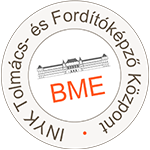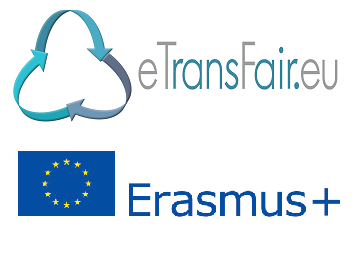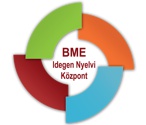Trainee report on court interpreting oragnised within the framework of BME TFK’s Mentoring Scheme
Trainee report on court interpreting
organised within the framework of BME TFK’s Mentoring Scheme
Translating and interpreting for courts in Hungary
The topic of the group-mentoring event, held on 30th January 2018 within the framework of BME TFK’s Mentoring Scheme, was court interpreting and translation. The three professionals who shared their experiences regarding this topic were Dr. Csilla Szabó (English), Ágnes Hilóczki (German) and Gabriella Tóth (Italian). They are all lecturers at BME TFK, but also practising interpreters.
The conversation started with a brief introduction as the speakers told us how they got into the profession and then went on to talk about the difficulties they face when working for courts. Two out of the three speakers completed a course at ELTE FTT entitled “Training in interpreting for Court and Public Authorities” and they started their career as a result of recommendation, either through OFFI, or thanks to a family member working as a judge. They agreed that before interpreting at courts it is advised to translate legal documents to get an overall view of the topics and the relevant terminology.
They all highlighted that choosing a specific legal domain and acquiring a sound knowledge of the relevant terminology are essential. They also told us that instead of short consecutive interpreting (the preferred mode of interpreting at hearings), interpreters are often asked to provide long consecutive interpreting or chuchotage, but sight translation is also common).
They usually get informed about the case in the very last minute, which may pose further difficulties (in principle, prior access to documents is also possible, but many interpreters are not aware of this opportunity). In many cases, interpreting assignments are cancelled as participants either do not appear at court or documents do not arrive in time.
In summary, the questions raised and the answers given were the following:
- How does the court inform the interpreter/translator that her services are required? In both cases they receive a summoning order, in which interpreters are notified of the venue and the date of the hearing, while translators are informed about the deadline until which they have to translate the attached documents (in a paper format).
- What are the most important changes regarding the work of court translators and interpreters brought by the revised Code of Civil Procedure entering into force in January 2018?
Attested translation is no longer required (the concept of “regular” (or to use the word-for-word translation from Hungarian: “simple”) translation has been brought in and costs have to be advanced by the applicant).
- Is appointing an interpreter compulsory for the court in all cases when a non-Hungarian person attends the proceeding? (e.g. Is interpretation compulsory if someone is not Hungarian, but declares that he/she can speak and understand Hungarian?)
In theory, it is not, if the participants declare that they understand the language of the court. However, we have had problems regarding this issue. A Spanish woman filed for a restraining order to keep her family away from her German husband. As the woman declared that she understood German language, the language used in court was German. It turned out that the woman did not sufficiently understand German and the outcome would probably have been more favourable for her had she had an interpreter.







